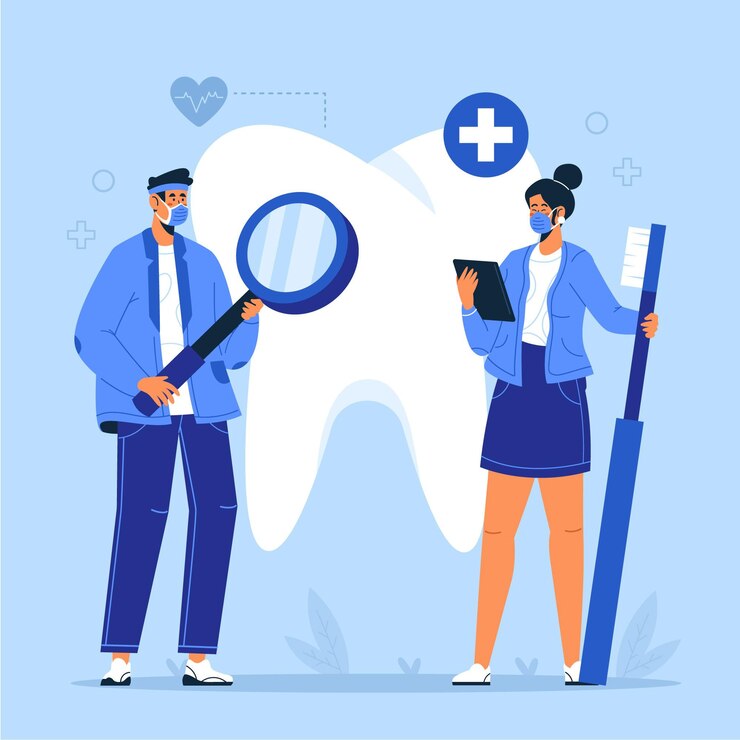At Avenue Dental Care, we understand that keeping your teeth healthy and intact is essential for your overall well-being and confidence. While preventive care like regular cleanings and fillings can keep your teeth in great condition, accidents, deep decay, or trauma can sometimes result in severely damaged or infected teeth. When a tooth becomes compromised to the point that it is at risk of falling out, endodontic treatment, commonly known as a root canal, can be the key to preserving it.
In this article, we’ll explore why endodontics is essential for saving severely damaged teeth, how it works, and how it can benefit you. Whether you’re in Everett or Puyallup, WA, and are experiencing tooth pain or suspect you may need a root canal, this guide will help you understand why this treatment is often the best solution.
What is Endodontics?
Endodontics is a specialized branch of dentistry that focuses on diagnosing and treating diseases and injuries of the dental pulp – the soft tissue inside a tooth that contains nerves, blood vessels, and connective tissue. This delicate tissue can become infected or damaged due to deep cavities, cracks, or physical trauma. When this happens, the infection can spread, leading to pain, swelling, and even the loss of the tooth.
A root canal is the most common endodontic procedure performed to save a tooth by removing the damaged or infected pulp, cleaning the area, and then sealing it to prevent further infection. The tooth is then restored with a crown or filling to ensure its strength and functionality.
How Does Endodontic Treatment Work?
The root canal process involves several stages to ensure the tooth is fully treated and preserved. Here is a breakdown of the procedure:
- Initial Examination and Diagnosis: The first step is a thorough examination. Your dentist or endodontist will assess your tooth using X-rays and by checking for signs of infection, decay, or damage. If the pulp is compromised, a root canal is likely necessary.
- Anesthesia: Before any treatment begins, your dentist will administer local anesthesia to numb the affected area. This ensures you are comfortable throughout the procedure, which typically lasts between 60-90 minutes, depending on the complexity of the tooth’s condition.
- Accessing the Pulp: Once the area is numb, your dentist will create a small opening in the top of the tooth to access the pulp chamber. This allows them to remove the infected or damaged pulp.
- Cleaning and Shaping: After removing the pulp, the dentist cleans and shapes the inside of the tooth’s root canals to remove any remaining infection and prepare the tooth for filling.
- Sealing the Tooth: Once the root canals are cleaned and shaped, they are sealed with a special biocompatible material. This prevents any further bacterial infection and ensures the tooth is restored to its full function.
- Restoration: After the root canal is completed, the tooth is typically restored with a filling or crown. This protects the tooth and ensures it can withstand normal chewing forces.
Why Endodontics is Essential for Saving Severely Damaged Teeth
When a tooth becomes severely damaged or infected, the potential for saving it can seem limited. However, endodontics provides a crucial opportunity to preserve the tooth and avoid the need for extraction. Here are the key reasons why endodontic treatment is essential for saving severely damaged teeth:
- Pain Relief: One of the primary reasons people seek endodontic treatment is the pain associated with infected or damaged teeth. When the pulp is compromised, it can lead to excruciating pain, swelling, and sensitivity, especially to hot or cold temperatures. Root canal therapy removes the infected tissue and provides significant relief from this pain. The procedure itself is relatively painless due to the use of local anesthesia.
- Prevention of Further Infection: If left untreated, a severely damaged tooth with infected pulp can lead to further complications. The infection may spread to the surrounding tissue, bone, and gums, potentially leading to an abscess, which is a painful collection of pus. This can result in swelling, fever, and even tooth loss. Endodontic treatment eliminates the infection, preventing it from spreading and ensuring the health of the surrounding tissues.
- Avoiding Tooth Extraction: In many cases, when a tooth is severely damaged, extraction seems like the only option. However, with endodontics, extraction can often be avoided. By removing the damaged pulp and sealing the tooth, root canal therapy allows you to retain your natural tooth for years to come. This is not only more cost-effective in the long term, but it also helps preserve the structure of your smile and bite.
- Maintaining Natural Tooth Function: Natural teeth are always preferable to artificial replacements because they maintain proper alignment and function. When you lose a tooth, it can cause neighboring teeth to shift, leading to bite issues, difficulty chewing, and even speech problems. By preserving the tooth with endodontic treatment, you maintain its function in your mouth, ensuring that you can chew and speak comfortably without worrying about the need for dentures or implants.
- Long-Term Durability: Modern root canal treatments are highly effective and can preserve the tooth for many years. Once the infected pulp is removed and the tooth is sealed, the chances of the infection recurring are minimal. With proper care, including regular brushing, flossing, and dental checkups, a treated tooth can last a lifetime. This makes endodontics a long-term solution that helps you keep your natural teeth intact.
- Minimal Discomfort and Quick Recovery: Despite common misconceptions, root canal therapy is not as painful as it may seem. With modern techniques and anesthesia, most patients experience little to no discomfort during the procedure. After treatment, some mild soreness may occur, but this typically resolves within a few days. Most people can return to their normal activities within 24 hours of treatment.
When Should You Consider Endodontic Treatment?
If you’re experiencing any of the following symptoms, it may indicate that you need endodontic treatment:
- Persistent tooth pain, especially when chewing or applying pressure
- Sensitivity to hot or cold temperatures that lingers
- Swelling or tenderness in the gums near the affected tooth
- Discoloration of the tooth
- A pimple-like bump on the gums, which may release pus
If you notice any of these signs, it’s important to consult with your dentist at Avenue Dental Care as soon as possible. Delaying treatment can lead to the worsening of the infection and the need for extraction.
Conclusion
Endodontics plays a vital role in saving severely damaged or infected teeth, allowing patients to maintain their natural smile and dental function. At Avenue Dental Care, we are dedicated to providing the highest standard of endodontic care in Everett and Puyallup, WA. If you suspect your tooth may need a root canal or you’re experiencing any discomfort, don’t wait—schedule an appointment with us today to explore your treatment options. With our expertise and advanced techniques, we can help you save your tooth and restore your smile to full health.





